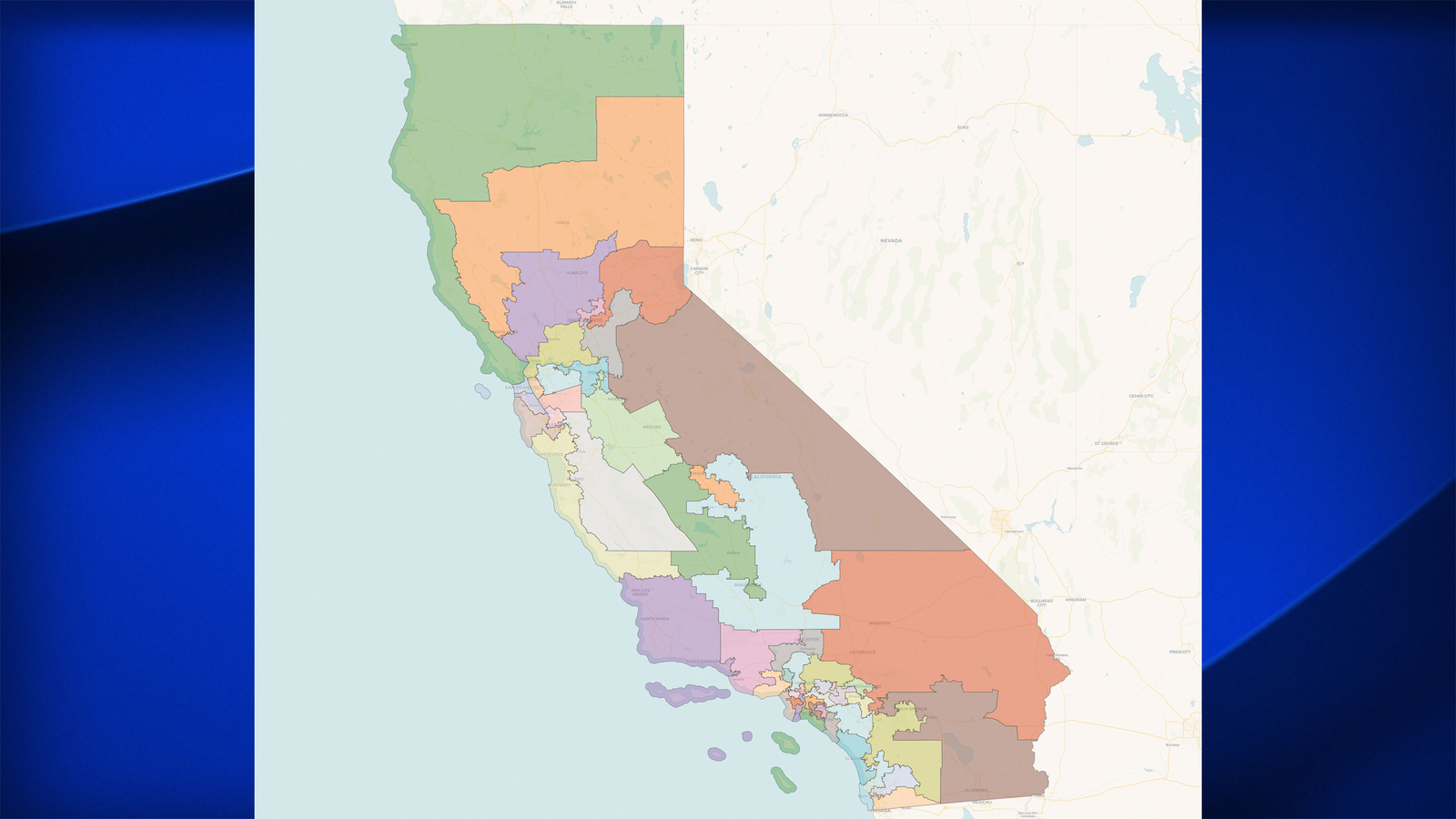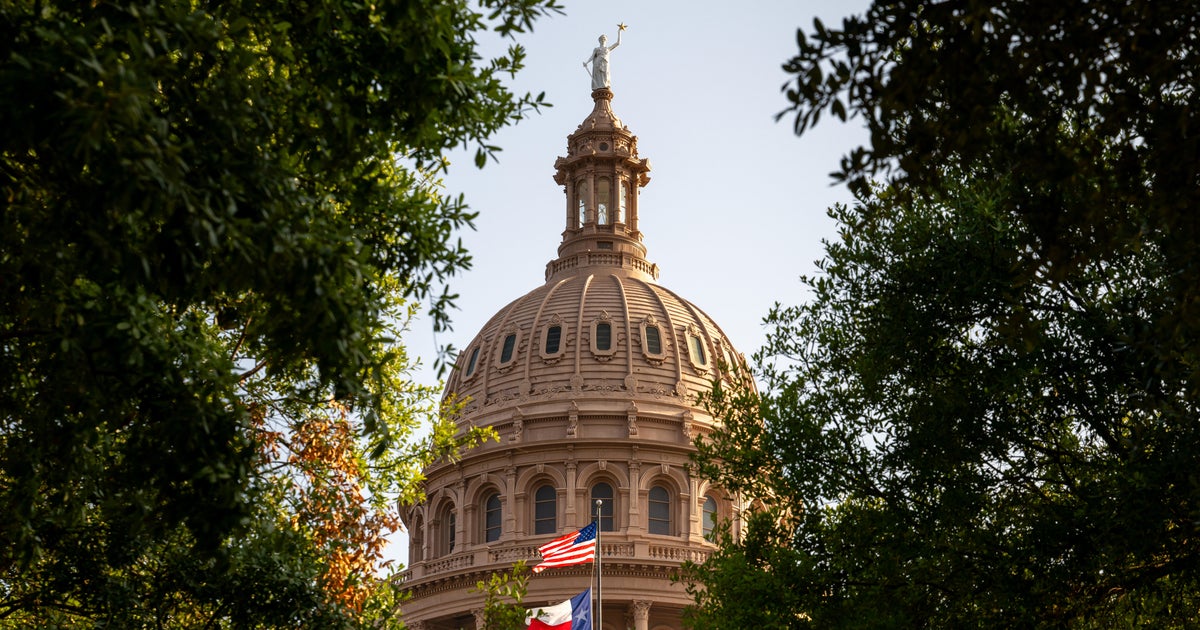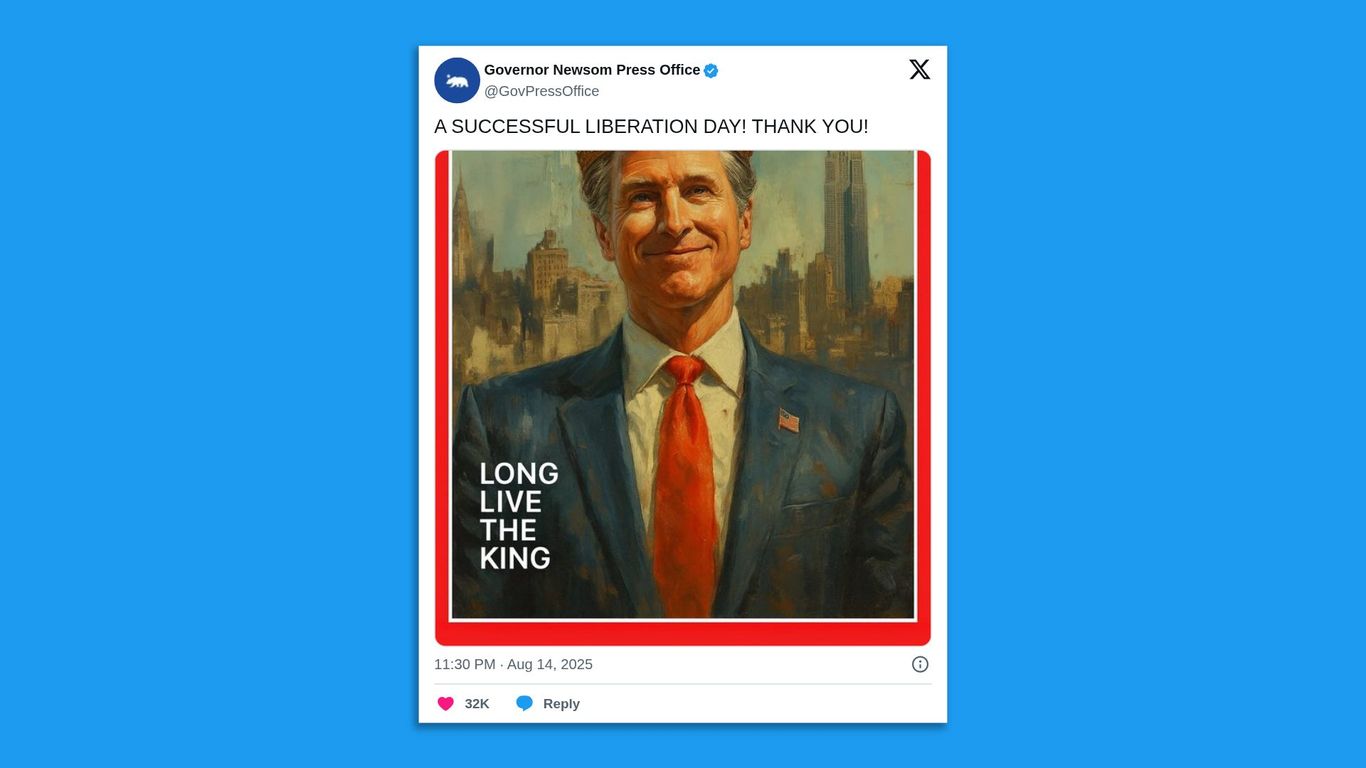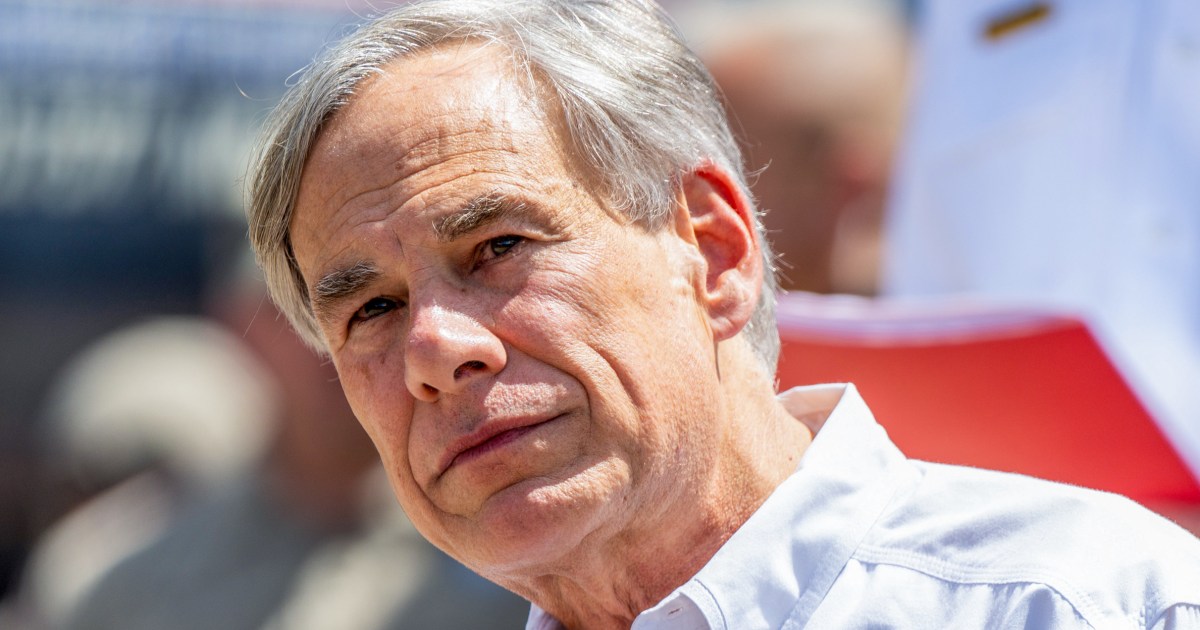Governor Newsom Takes Stand Against Voter Suppression in California
#governor newsom #voter suppression #redistricting #california #texas
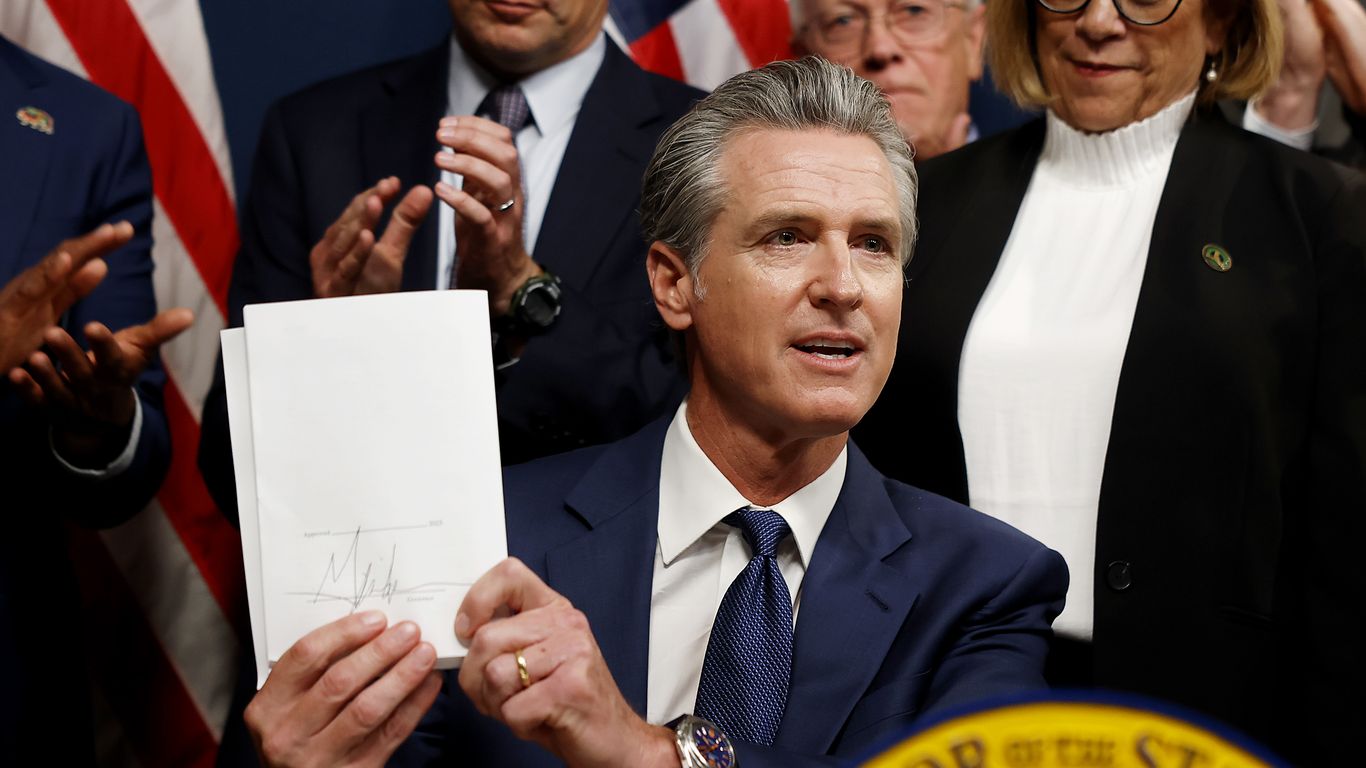
Introduction
In response to a controversial redistricting bill in Texas, California Governor Gavin Newsom has signed two redistricting measures into law. This decision comes after a long battle between the two states, with Texas pushing for stricter voting laws and California pushing for fair and equal representation.
Key Details
The first measure, Senate Bill 139, will establish a 14-member commission made up of Democrats, Republicans, and Independents to redraw the state's congressional districts. The second measure, Assembly Bill 849, will require that the commission prioritize keeping communities of interest together when drawing district boundaries. These measures come after Texas passed a bill that critics say will suppress minority votes and give Republicans an unfair advantage in future elections.
Impact
The new districts will be in effect for the special election on November 4, giving Californians the opportunity to vote on the newly drawn boundaries. This move by Governor Newsom is seen as a strong stance against voter suppression and a commitment to fair representation for all Californians. The redistricting measures also serve as a reminder of the ongoing battle for voting rights and fair elections in the United States. It remains to be seen how these measures will impact future elections and the overall political landscape in California.
About the People Mentioned
Gavin Newsom
Gavin Christopher Newsom, born October 10, 1967, in San Francisco, California, is an American politician and businessman currently serving as the 40th governor of California since January 2019. Raised in an established San Francisco family and educated at Santa Clara University, where he studied political science, Newsom began his political career in 1996 with an appointment to the San Francisco Board of Supervisors, after serving briefly on the city’s Parking and Traffic Commission. Newsom was elected mayor of San Francisco in 2004, becoming the youngest mayor in over a century. His tenure was notable for progressive initiatives, including directing the city to issue marriage licenses to same-sex couples in 2004, a pioneering move in the national movement for marriage equality. He also launched the Healthy San Francisco program, expanding access to healthcare for uninsured residents. After serving as mayor until 2011, Newsom was elected lieutenant governor of California, holding that office from 2011 to 2019. As governor, Newsom has focused on progressive policy areas such as gun control, criminal justice reform, environmental protection, affordable housing, and universal healthcare access. His administration has prioritized tackling homelessness, improving public safety, and expanding educational opportunities. Notably, he imposed an early moratorium on executions in California and led the state's response to the COVID-19 pandemic, implementing some of the strictest health measures in the country. Newsom survived a recall election in 2021 and was re-elected in 2022, maintaining significant political influence in California. Newsom is also known for his entrepreneurial background, founding the PlumpJack Group, which grew into a substantial hospitality and wine business. He is married to Jennifer Siebel Newsom, and they have four children. Diagnosed with dyslexia in childhood, Newsom has spoken publicly about overcoming learning challenges while pursuing a career in public service[1][2][3][5][6][7].
About the Organizations Mentioned
Democrats
The **Democratic Party** is one of the two major political parties in the United States, widely recognized as a liberal and progressive organization that advocates for social and economic equality, civil rights, environmental protection, and worker rights. It generally supports stronger government intervention in the economy and social welfare programs such as Medicaid and food aid, funded through progressive taxation[1][3]. Founded in 1848 with the creation of the Democratic National Committee (DNC), it is the oldest continuing political party and party committee in the U.S.[2]. The **Democratic National Committee (DNC)** is the central governing body, overseeing campaign activities, party organization, and the Democratic National Convention. It coordinates efforts across all 57 states and territories, supporting local and state party organizations to elect Democrats at every level of government[1][2]. The current DNC chair as of 2025 is Ken Martin[1][2]. Historically, the party has undergone significant transformations, evolving from its roots as the Jacksonian Party to its current identity emphasizing progressive policies and social justice[3]. The party is known for using the color blue as its symbol since the 2000 presidential election[3]. It has pioneered civil rights legislation and expanded social safety nets, shaping much of modern American social policy. In recent years, the Democratic Party has focused on renewal efforts to address changing public expectations and declining support among certain voter groups. This involves reevaluating policies and strategies to build a sustainable majority amid rapid social and technological change[4]. It also actively fights to protect democratic institutions and voting rights, coordinating a broad coalition of organizations to defend against anti-democratic threats[6]. Currently, the party continues to mobilize grassroots voters and organize campaigns across all levels, aiming to secure electoral victories and promote a fairer, more equal future for Americans—efforts often highlighted in business and technology news for their impact on policy and governance[5].
Republicans
The **Republican Party** is a major political organization in the United States, founded in 1854 in Jackson, Michigan, primarily by anti-slavery activists opposing the expansion of slavery into new U.S. territories[1][2]. Its origins lie in the political turmoil following the Kansas-Nebraska Act, which ignited sectional conflicts. The party emerged from a coalition of former Whigs, Free Soil Democrats, and abolitionists united by the ideology of "Free Soil, Free Labor, Free Men," advocating against slavery, supporting free market labor, and promoting modern economic development including railroads, banking, and high tariffs[4][6]. Key early achievements include the nomination and election of Abraham Lincoln as the first Republican president in 1860, whose leadership during the Civil War was pivotal in preserving the Union and abolishing slavery. Lincoln’s Emancipation Proclamation and the party’s role in passing the 13th, 14th, and 15th Amendments were landmark contributions to civil rights and the redefinition of American freedom[2][5][6]. The party dominated national politics from the Civil War era until the Great Depression, during which it was the principal advocate for industrial and business interests, protective tariffs, and national banking[2][5]. Throughout its history, the Republican Party has undergone ideological shifts but has consistently emphasized economic modernization and conservative fiscal policies, aligning with business and technological advancement. The early 20th century saw figures like Theodore Roosevelt promote progressive reforms, while later eras emphasized free enterprise and innovation to drive growth[2][4]. Currently, the Republican Party remains a central force in American politics, influencing policies related to business, technology, and governance. Its historical legacy as the party of Lincoln and abolition continues to be a defining aspect, shaping its identity and appeal, especially in debates over civil rights, economic policy, and national unity[5][6]. The party’s evolution reflects ongoing tensions between tradition and modernization within the U.S. political landscap
Independents
The organization "Independents" broadly refers to groups and movements related to independent political actors and voters who are not formally affiliated with any major political party. These organizations and political independents play a significant role in shaping political dynamics by operating both inside and outside established party structures. Independent Political Organizations (IPOs) function by building political power through grassroots mobilization, candidate recruitment, and legislative advocacy. They strategically engage in electoral contests, often running candidates on Democratic ballots while maintaining organizational distance from party apparatuses. IPOs focus on uniting diverse community groups—labor unions, tenant associations, faith communities—to create synchronized mass actions aiming for progressive reforms and legislative victories. This dual inside-outside approach helps IPOs navigate challenges like avoiding cooptation by major parties and abstention from electoral politics, thereby strengthening independent political influence[1]. The rise of independent politicians and voters reflects a broader disillusionment with traditional party politics. Independent politicians may reject party affiliation due to ideological differences, distrust of party systems, or strategic considerations. Notable independent politicians include Bernie Sanders and Justin Amash in the U.S., and the President of Iceland typically serves as an independent[2]. Independent voters form a critical and growing segment of the electorate, often leaning toward one of the major parties on specific issues but identifying broadly as moderates who desire to "think for themselves." However, many independents are excluded from primary elections due to closed primary systems, limiting their influence on candidate selection[3][5][6]. While "Independents" as an organization per se is not a single entity, groups like the Independent Center promote political independence and reform by advocating for bipartisan cooperation and supporting common-sense solutions to strengthen democracy[7]. Meanwhile, Independent Sector, though differently focused, is a national membership organization that connects and advocates for nonprofits and philanthropic entities, emphasizing a healthy charitable sector's role in societal well-being[4]. In summary, the Independents encompass a diverse and influential force in contemporary politics, characterized by grassroots
